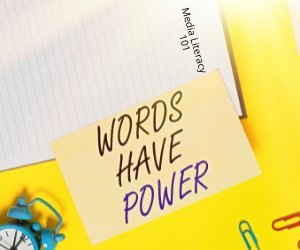
Media literacy is a term that describes the practice by which people critically evaluate, create, and manipulate media. This is not simply an individual, personal, or professional goal but one that has become encompassed by a grassroots movement that calls for a public education system about media literacy. This sets forth the goal of establishing media literacy skills necessary for what the organization Media Literacy Now calls ‘health, well-being, economic participation, and citizenship.”
Media Literacy Goals
Media literacy sets forth five primary goals:
- Learn to think critically: Media is interpreted through individual lenses. Modern media professionals are very well aware of this and algorithms are designed to appeal to the interests and phobias of individual media consumers.
- Become a smart consumer of products and information: A smart consumer can identify scams and fraud and knows how and when to avoid them.
- Recognize points of view, and create media responsibility: There are more and more diverse points of view and perspectives than ever before. Media literacy curriculums across the country teach students to identify the point of view of a media sender in any given instance.
- Identify the role of media in our culture: The media is extremely powerful in modern society and it is not structured as clearly as it was back during the eras of radio or television. Political media literacy is especially critical so that students know how to identify and qualify different news sources.
- Understand the author’s goal: It’s important for students to understand a source but it is even more critical to understand what the goal of an individual author is. The Biasly AI system is built to identify and sort sources and authors.
With this article, we are specifically looking at political media literacy.
Political Media Literacy
Political media literacy is critical in our divisive political age. Immediately following the 2016 US elections, accusations have been made about hackers who created false accounts on social media that were designed to activate and manipulate certain demographics. One of the more egregious examples showed a hacker who made posts aimed at both white nationalists and Black Lives Matter activists and suggested separately that they meet for protests in what turned out to be the same location, thus instigating conflict between the two groups.
Higher educational institutions have made numerous studies evaluating the impact of social media. One study from the University of Georgia concluded that “men and women often have differing views around the expected norms for romantic relationships, consent, and sexual activity, and the messages and images they consume on social media may play a role in shaping those perceptions.”
To be literate about social media, we need to identify the role it has in our broader culture. This study by the University of Georgia does precisely that.
By living on their own often for the first time in their lives, college students are in an age range where they are especially vulnerable to political messages on social media. Their principles about how to govern their own lives and affairs are just then emerging and their minds are ready to be shaped by nearly anything.
Beyond the six primary goals are six key questions to ask when teaching children and young adults media literacy:
- Who created this?
- Why did they make it?
- Who is the message for?
- What techniques are being used to make this message credible or believable?
- What details were left out and why?
- Most significantly, how did the message make you feel?
Media literacy can be understood best when juxtaposed with digital literacy. Young people are effectively taught how to search the internet. Media literacy involves knowing how to protect their own and the private information of others online, to give proper and due credit when applying the work of others, to understand the digital footprint – i.e. awareness of the profile that they are creating for others, and to respect the ideas of other people.
Effective media assessment tools will assess for what is valid information and what simply is not. The internet is filled with “clickbait” – media that doesn’t necessarily provide necessary information of any kind but instead serves tantalizing headlines that potentially bring in a lot of advertising revenue.
Reliable information can be found in what appears, at first glance, to be unreliable sources. Our AI system is based on input from a wide and disparate range of media.
Nancy M. Preyor-Johnson, a newspaper columnist for the San Antonio Express-News, has said that the level of information currently out there is an “infodemic” and a process of delineating it is critical for anyone taking it in. It is also important to train students to process “misinformation” and conspiracy theories, a great deal of which have proliferated due to the Covid-19 pandemic.
Biasly Media Literacy Education Platform (MLEP)
Biasly has its own unique methods to offset and inform readers about media bias. We have an advanced artificial intelligence (AI) system that allows users to scan hundreds of articles each day and assesses how politicians stand on certain issues and whether or not a given portrayal of a politician is negative or positive.
We employ a great deal of our staff who are tasked with fulfilling the information requirements necessary for our AI system to function. User input is also utilized. The goal of this is to provide people with quick access to make quick and accessible judgments on how politicians are portrayed and what their stance is on the issues at hand.
While immediate education regarding media bias is important to instill in young people, our AI system mitigates that by providing immediate assessments of how politicians are being portrayed by media and what their given positions are on critical policy issues.






















